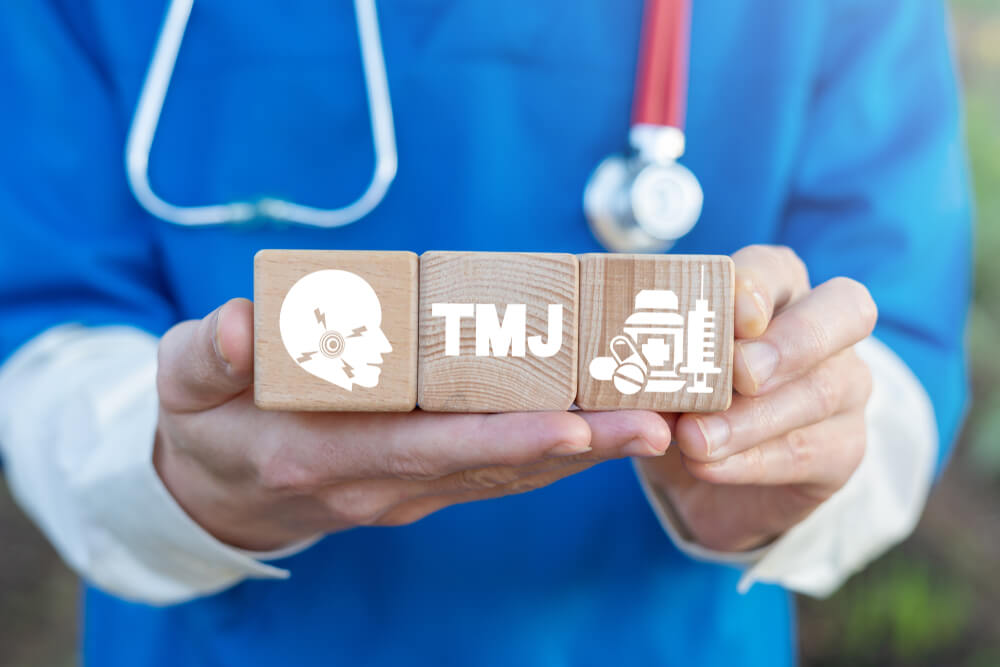Have you ever given a thought to how your mouth has the flexibility of opening and closing whenever you eat, yawn, or talk? If your answer is positive, you probably know it’s all about the temporomandibular joint.
Every human has a TMJ pair, usually located right in front of the ears. It is a sliding joint that connects the skull and the jawline. The next time you experience pain in jaw and ear, you may want to see a TMJ specialist.
Like with any other body parts, there are a combination of factors that can render the joint dysfunctional. The condition is temporomandibular disorder, and statistics indicate the disease is prevalent in women.
Ear and jaw pain can be the first symptom, but it’s necessary to know other symptoms and treatment options for TMJ disorder.
What Causes a TMJ Disorder?
As stated earlier, temporomandibular disorder can result from various factors. As such, it is not usually easy to determine the cause. However, the most common reasons are habitual actions or other infections.
Bruxism
Bruxism is the habit of grinding teeth, whether voluntarily or involuntarily, that causes trauma on the TMJ joint. The continuous grinding or hammering alters the alignment of the teeth and inflammation of the membranes around the TMJ.
The grinding can occur involuntarily during sleep due to excessive chewing or it can occur if you suffer a blow to the jaw.

Jaw Clenching
Jaw clenching occurs when you bite heavily on things while awake. It could be on anything, including fingernails, pencils, or even chewing gum. The continuous clenching causes stress on the jaw, causing jaw tension and subsequent TMJ disorders.
Arthritis
Two types of arthritis have a high likelihood of causing TMJ disorders: rheumatoid arthritis and osteoarthritis.
Rheumatoid arthritis is usually an autoimmune response that can affect different body organs but exhibits joint inflammation persistence. It affects the TMJ with prevalence in children by eroding the bone and destroying cartilage, hence the subsequent TMJ deformity.
On the other hand, osteoarthritis causes the joint’s degeneration through wear and tear. It progressively destroys the joint’s cartilages through biological and mechanical factors and forms a bone at its surface.
Osteoarthritis is prevalent in people with inflammatory diseases, individuals continuously exposed to joint trauma, or aging populations.
Other causes of temporomandibular disorder can include hormonal effects, environmental, and genetic factors. At a higher rate, women experience TMJ disorders, a situation attributable to the hormonal impacts.
Also, specific groups such as violinists record a higher TMJD rate than the general population due to straining the jaw muscles while holding their instruments.
What Are the Symptoms of TMJ Disorder?
Temporomandibular disorders have a range of symptoms that can also present themselves with other diseases. Dental and Facial Aesthetics of South Florida can help you with a proper diagnosis and a full medical treatment for TMJ.
We can carry out a clinical examination, take X-rays, and advise you on how to relieve jaw tension.
The most common symptoms include:
- Pain or tender face and the areas around the joint, especially when moving the jaw. This happens when speaking, yawning, or eating. The pain can spread to the ears, neck, and shoulders.
- Locked jaw. The jaw may get stuck while your mouth closes, or it may open and lock in the given position. The jaw may also fail to open fully, indicating a dislocated jaw, or it may deviate on one side while opening.
- Dental problems. Can TMJ make your teeth hurt? Teeth grinding and clenching can traumatize the jawline, making the jaw or teeth hurt.
- Headache and migraines. These headaches can mimic migraines, and they come with pressure or pain behind the eyes.
- A clicking, grinding, or popping sound when opening the mouth. The sound is common during jaw movement, and it could mean a dislocated disc. It is not always a cause of concern and can go untreated.
However, it can be a TMJD symptom if you experience pain. If so, you will need to see a TMJ specialist. Symptoms include:
- Pain or difficulty while chewing
- Difficulty swallowing due to muscle spasms
- Pain in the jaw and ear that may come with numbness or ringing
- A tired feeling on the face and swelling on one side of the face
Treatment Options for TMJ Disorder
Generally, no single cure exists for temporomandibular disorder. However, this should not be a cause of concern for those with the disorder. There are several treatment options that you can follow on your own to relieve the symptoms.
The majority of those with TMJ disorder treat the symptoms at home, although there are more specific treatment options if the disorder results from pre-existing conditions.
TMJ disorders caused by osteoarthritis are treatable using steroid injections, while mouth guards can work if the underlying cause is involuntary grinding or clenching.
Extreme conditions such as locked jaws or severe pain can necessitate surgery. Your specialist can advise you whether you need medical treatment for TMJ or a self-care program.

Medical treatments can include:
- Medication: Your TMJ specialist can recommend anti-inflammatory and pain-relieving drugs like ibuprofen and naproxen for headaches or ear and jaw pain. The specialist can also recommend medicines to relieve stress as stress is also a common cause of TMJD.
- Dental work: Dentists can treat TMJD caused by misaligned teeth through dental procedures, such as fixing braces and bridges.
- Transcutaneous Electrical Nerve Stimulation (TENS): This refers to a pain-relieving jaw and muscle relaxation therapy using low electrical currents. It is an effective solution for patients struggling with how to relieve jaw tension.
- Radio Wave Therapy: This is a therapy meant to stimulate the jaw and improve blood flow to relieve pain.
Home treatments for TMJD can include:
- Applying moist heat and taking over-the-counter medication to relax muscles
- Massaging the neck and jaw muscles to relax and ease pain
- Using a bite plate, mouth guard, or a splint to alleviate the effects of jaw grinding and clenching. You can get one custom made to fit the size of your jawline
- Eating soft foods cut into tiny pieces to minimize the impacts of excessive chewing
- Learning relaxation methods through counseling and training
- Avoiding unnecessary jaw movements like chewing gum or extreme yawning
Can TMJ make your teeth hurt? Temporomandibular disorder is not a life-threatening condition. Some patients even heal without treatment over time. Occasionally, you may experience some pain in the jaw muscles, which should not cause a lot of alarm.
However, TMJD can significantly affect your life’s quality due to the discomfort brought by the symptoms. Teeth that hurt is one of the TMJD symptoms and is one of the most severe pains patients may experience.
Whether the symptoms are mild or extreme, it is vital to seek medical advice. Besides, TMJ disorder symptoms are similar to those of many other illnesses, and only a diagnosis can reveal the truth.
At the Dental and Facial Aesthetics of South Florida, we are ready to provide professional advice, care, and treatment options depending on your unique situation. We can help you identify potential risk factors and take corrective action in time. We would be glad if you shared your comments and remarks.


